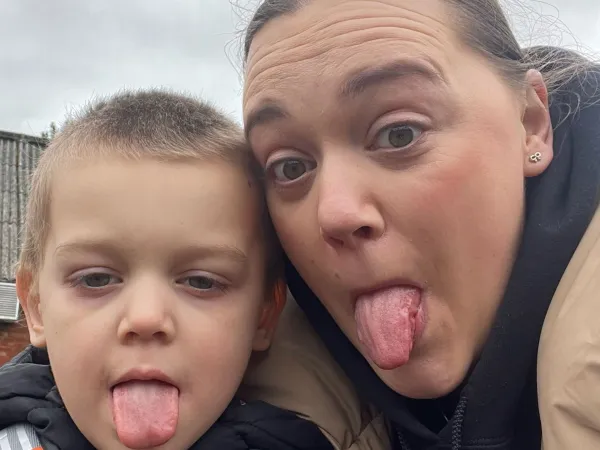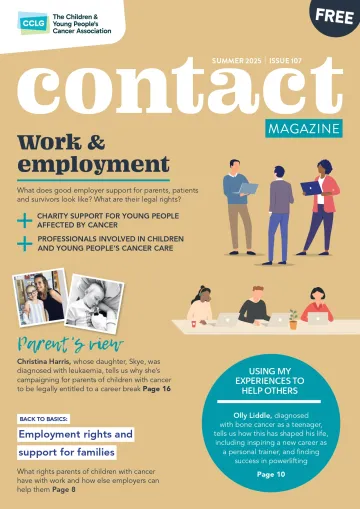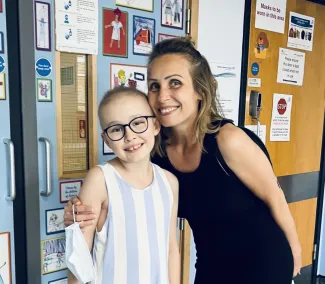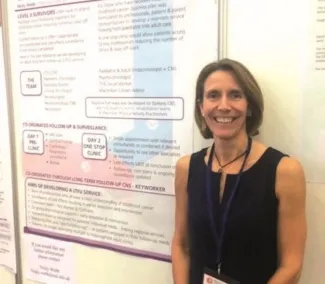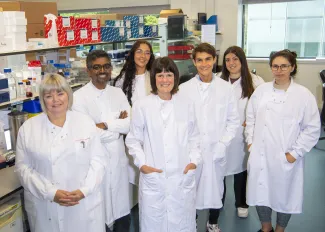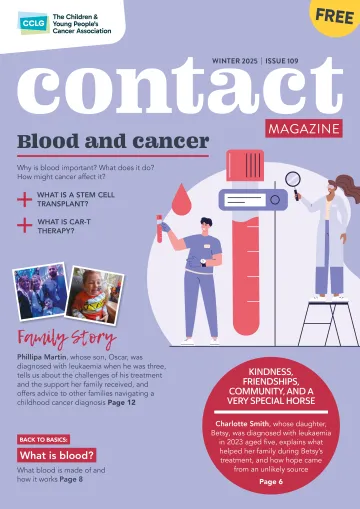I was just about to go back to work after maternity leave when George was diagnosed with cancer. Instead, I had to make a horrible call to my then employer to let them know I wouldn’t be returning. I wasn’t sure how long George would need me to take on the extra care, so I made the decision to leave.
George’s treatment began straight away with induction chemotherapy, which was two rounds and then reassessment scans, from which we had some promising news. We then carried on with four more rounds of chemotherapy and as his first birthday came around, he was able to ring the end-of-treatment bell. George still had tumours remaining, but it was felt at the time that the treatment had served its purpose from clearing the disease from his bones and bone marrow.
George’s treatment sadly had to begin again in February 2020 when his reassessment scans showed new sites of disease, so I didn’t have time to even think about going back to work at this point. George then had two rounds of chemotherapy before we were told that he had a refractory relapse. This led to George being enrolled onto a trial called the Beacon clinical trial, which saw him receive four rounds of treatment. After some more reassessment scans, they were happy that George's disease remained stable, and we stopped treatment again. With George still not being able to attend nursery on a regular basis I still wasn’t able to return to work.
Nine months later, George had further reassessment scans, and we got some more devasting news. George had relapsed again. This time, treatment was very short with just two rounds of chemotherapy and immunotherapy combined. We were told that he would have to stop treatment as no change had happened, but his disease remained stable.
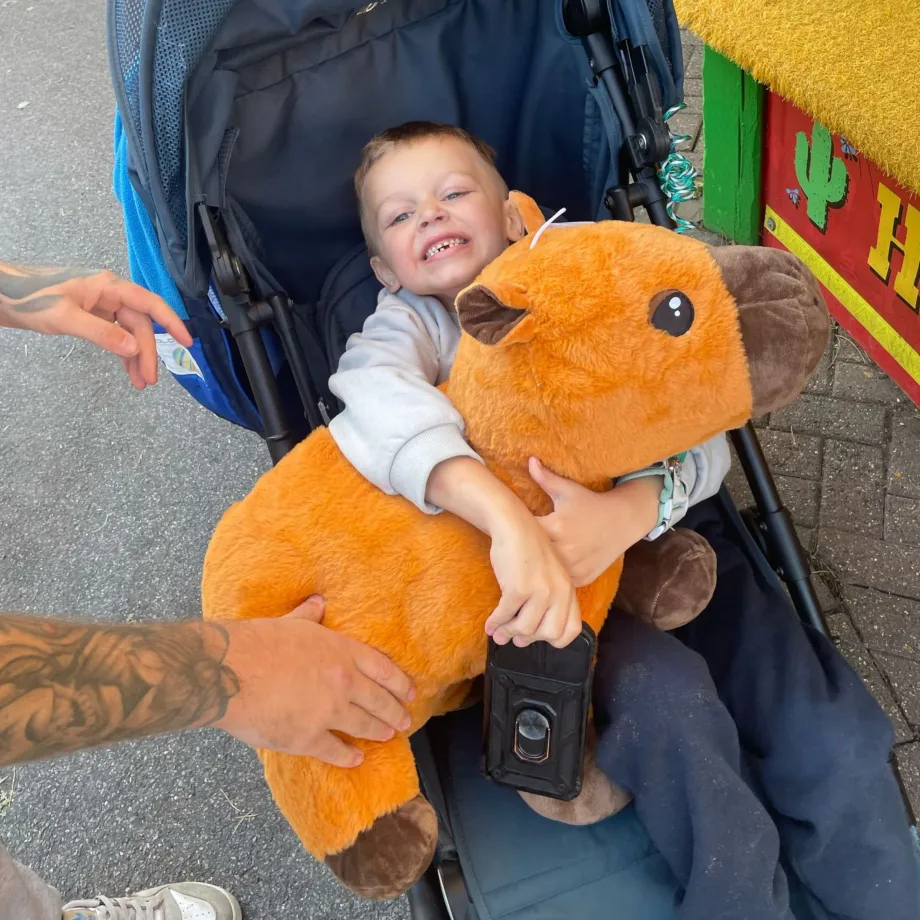
George has been off active treatment now for three years, but we continue to have six-monthly scans to watch how his disease behaves, and he still lives with multiple tumour sites. The care for George is very different now as he was diagnosed with autism at the age of five, which comes with its own complex needs. George is attending school full time which has taken some work by us all to make happen, but he's thriving, which is incredible to see.
How charity support helped during George’s treatment
Leaving work did add stress to our family as only receiving one income added extra strain on finding funds to pay your household bills, the extra food costs and travel expenses. There's a government benefit called 'Disability Living Allowance' that you can apply for, but your child must be unwell for three months before you can apply, so you can soon see your debts add up. We did receive financial help from friends and family who set up JustGiving pages to help with any additional costs we faced, which we felt extremely lucky for.
The Childhood Cancer Parents Alliance (CCPA) was a massive part of our support network while George was on treatment and most importantly, the charity stuck around after. We’d get sent parcels at Easter and Christmas full of gifts for the whole family. There were personal emails from its CEO Rachael, checking in on us and making sure we were all okay and didn’t need anything, and invites to family parties, where you felt you could let go and be yourself around families that had been through something like yourself. Fully funded trips, art therapy classes and more are things that CCPA provided for our family.
How volunteering led me back into employment
In October 2023, I saw an advert on the CCPA’s social media pages, looking for volunteers to list items on its Vinted account. I really needed to start thinking about getting back out into society and to start having adult conversations. Most importantly, I needed to feel like me again and have a purpose, so I decided to volunteer, and was glad I did. I loved coming into CCPA everyday as I already felt part of the family for such a long time. It just felt right for me to give back as my way of saying ‘thank you’ for everything they’d done for us over the years.
After a while, I was asked to join the team as one of the eBay listers, which came with paid hours. I was never put under any pressure to commit to hours. Whatever I could offer them was a bonus and any time I needed to leave because school had called me or the children were unwell, I was never made to feel bad. CCPA value what family really means, and they understand that your family comes first.
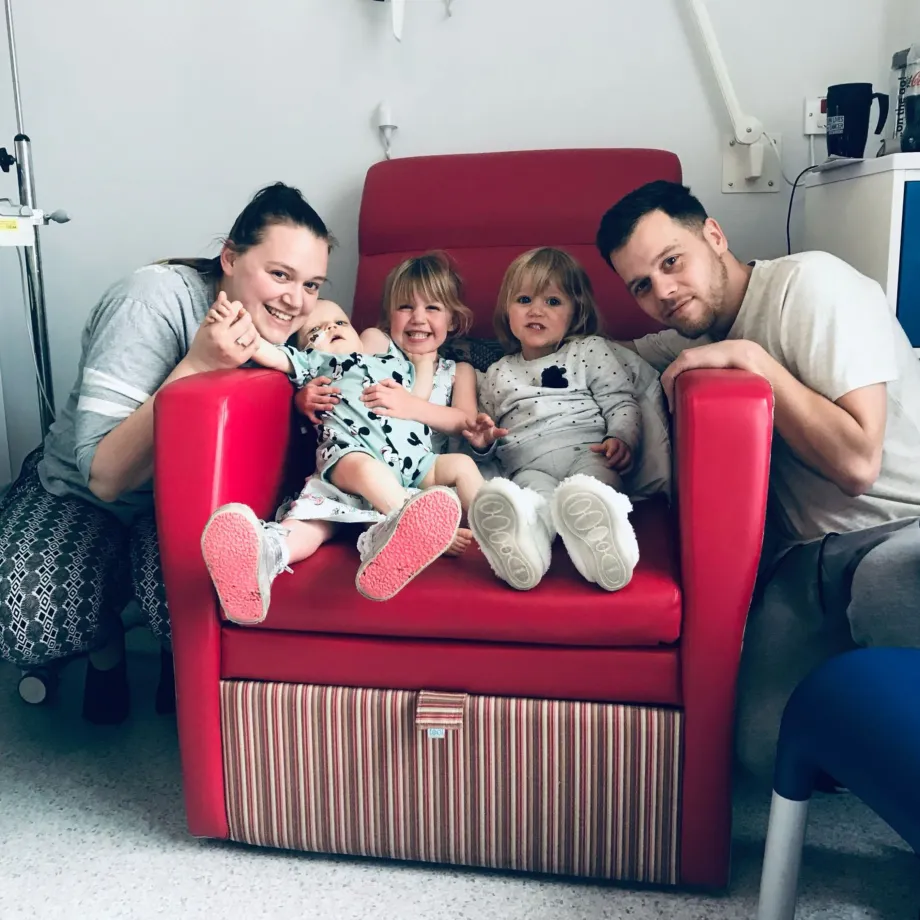
Sian, dad Martyn, George and sisters Lexi and Sienna
My latest role with the CCPA
Last summer, Rachael approached me to see whether I’d be interested in a new position the charity wanted to invest in. This was a fundraising lead, with responsibilities including connecting the charity with local businesses and companies, being the first point of contact for anyone wanting to raise money for the charity, and organising events to generate more funds to support the families we look after.
I was shocked, but also very honoured to be asked to do this role. However, I was worried I wouldn’t be able to offer them full-time hours because of childcare. From the start, though, I was asked what I felt comfortable working and I was offered to work remotely if ever the children needed me at home or during the school holidays. For an employer to be so understanding about your homelife is hard to find, but equally so important.
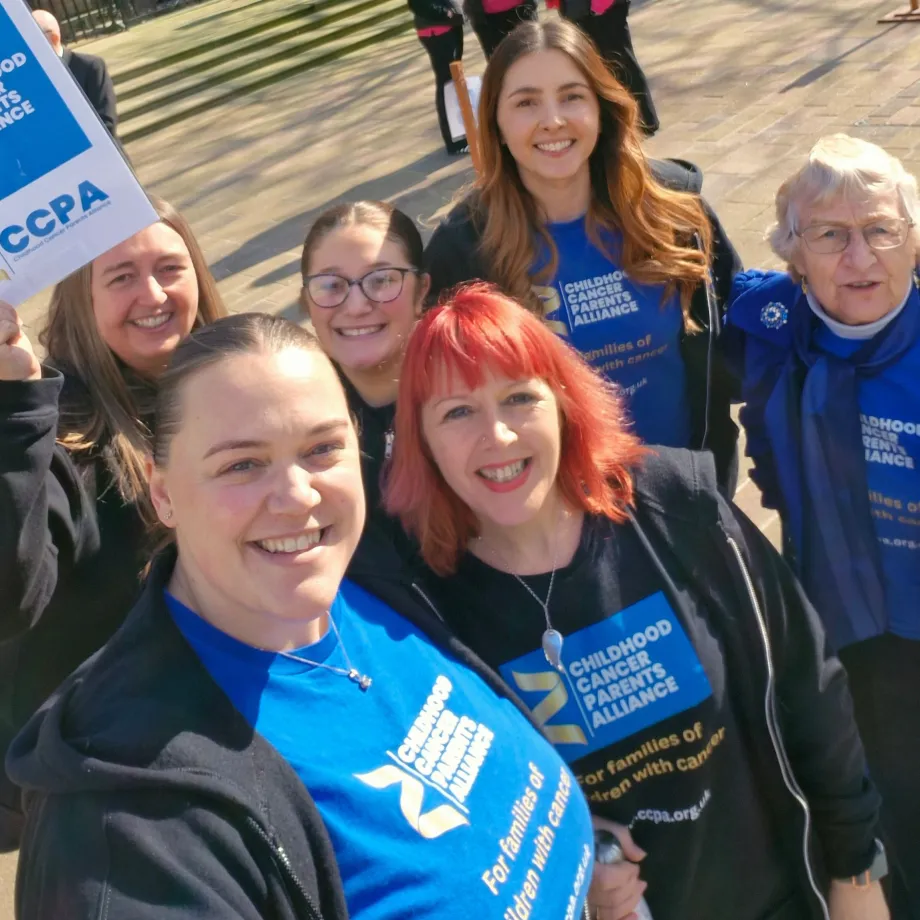
Sian with her work colleagues
I’m now in the position that our homelife is very settled and financially we’re in such a better place. I’m very grateful to have been given this opportunity to start a new career and work alongside the amazing families we support. My mission is to help the charity give the families the world, because they deserve it.
I really needed to start thinking about getting back out into society and to start having adult conversations. Most importantly, I needed to feel like me again and have a purpose.
We never want to see any of them struggle, so we want them to know we’re there for them financially or to offer any wellbeing support they need. When your child has been diagnosed with cancer, it’s so hard and sometimes you can’t seem to find the light at the end of the tunnel. And, even after treatment is finished, the struggles don’t go away. But you’ve always just got to remember to be gentle on yourself and ask for help, from any support network around you.
From Contact magazine issue 107 | Summer 2025

